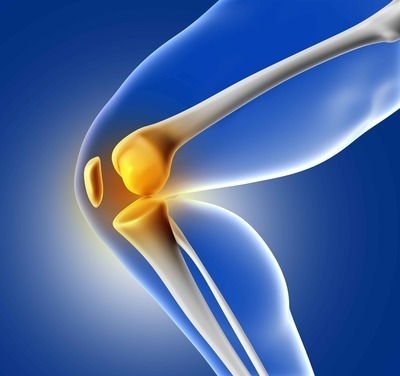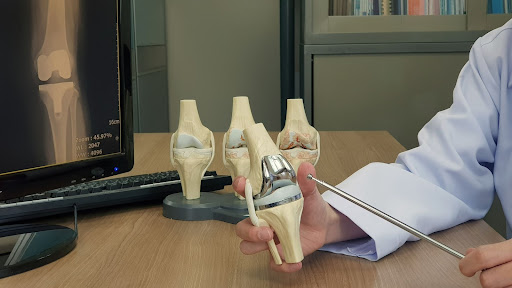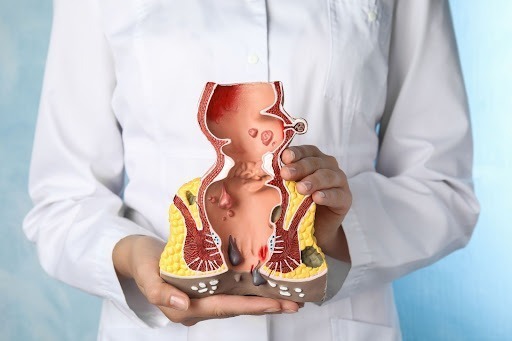General Surgeries / Hernia / Laparoscopic
Hernia Surgery: All Major FAQs Answered!

by admin
20th October 2021
5 minutes read
When any treatment calls for surgery, suddenly the mind fills with a jumble of questions. It is a natural instinct to have a lot of doubts as the decision to undergo any surgery is certainly a big deal. Hernia is common and not a life-threatening medical condition. However, it requires surgical intervention to avoid complications. Following is a compilation of some major questions asked by our patients about hernia surgery. They cover surgical procedures to diet and recovery time. We hope to solve your doubts.
Hernia surgery, also known as herniorrhaphy or hernioplasty surgery, is a medical procedure to repair hernias. A hernia occurs when organs or tissues protrude through weakened abdominal muscles. Surgery involves repositioning the herniated tissue and strengthening the abdominal wall. It’s a common hernia treatment to alleviate pain and prevent complications like bowel obstruction. Hernia operations are vital for effective hernia disease treatment. Post-surgery, hernia therapy may include rehabilitation to support recovery. These procedures are essential to manage and resolve hernias, promoting the patient’s well-being and preventing further health issues.
Laparoscopic hernia repair is a minimally invasive surgery with the advantages of less pain, less blood loss, and quicker recovery. It involves the use of a laparoscope which is inserted through small incisions in the abdomen. This device provides a live view of the defect during the procedure, making the repairs easier. Open surgery, on the other hand, involves a single large incision through the abdominal muscle which calls for longer recovery time and increases the risk of blood loss, pain, and infection. In terms of cost, laparoscopic surgery is costlier than an open surgery.
Hernia surgery typically involves some level of discomfort, but pain can be managed effectively with medication. It’s an essential part of hernia disease treatment. Post-surgery, pain gradually subsides, and most patients can resume normal activities within a few weeks. For hernia relief at home, following the surgeon’s guidelines and engaging in gentle exercises can help in the healing process. However, home remedies for hernia are not a substitute for medical treatment, and surgical intervention is often necessary to address the underlying issue and prevent complications.
The repair method used to treat a hernia is decided based on the patient’s symptoms and the specific diagnosis. A surgical mesh is used to reinforce the area affected by a hernia, preventing the hernia from recurring and providing additional support to the damaged tissue. It is a flexible, flat sheet made from materials such as synthetic polymers (e.g., polypropylene or polyester). In some cases, particularly for small hernias or specific patient situations, surgeons may choose to perform hernia repair without using a surgical mesh. You may discuss the specific details with your surgeon.
It is important that you avoid strenuous exercises during your recovery period, such as lifting heavy weights, and sexual intercourse till your doctor gives you a go-ahead. Make sure that you take enough rest and engage in light activities as suggested by your doctor. You may take short walks of about 5-10 minutes during the day. Your surgeon can also suggest you wear an abdominal binder while walking after the surgery. Your surgeon will give you clear instructions on the limitations in activities and other precautions to be taken during your recovery.
After hernia surgery (hernioplasty, herniorrhaphy, or hernia operation), focus on easily digestible, low-fiber foods like soup, yogurt, and scrambled eggs. Gradually reintroduce solid foods, emphasizing protein and fiber-rich options like lean meats, fruits, and vegetables to aid in healing and prevent constipation. Stay hydrated with plenty of water. Avoid heavy, greasy, or spicy foods that may irritate the surgical area. Consult your healthcare provider for personalized dietary recommendations based on your specific treatment plan.
The recovery time for hernia repair depends on the type of hernia surgery. The average recovery time after a laparoscopic hernia surgery can take around 2-3 weeks while recovery from an open hernia surgery can take around 4-6 weeks. However, you will need to avoid strenuous activities for 1-2 months after the procedure. It’s crucial to follow your surgeon’s post-operative instructions and gradually increase activity levels.
After an umbilical hernia surgery you can sleep comfortable on your back. You can elevate your head with the help of pillows and also place a pillow below your knees to to reduce the pressure on the surgical site. Avoid sleeping on your stomach or the side that had surgery. Use prescribed pain medications as directed. Gentle walking during the day can help with circulation and minimize stiffness. Always follow your surgeon’s advice and avoid straining your abdominal muscles. For specific home remedies and treatment after umbilical hernia surgery, consult your healthcare provider.
A Note From Medfin:
We hope that we have answered at least some of your doubts about hernia surgery. If you are diagnosed with a hernia, you can talk to Medfin’s expert surgeons to get all your questions answered. Medfin offers the latest treatments for hernia repair. Our team will handle your surgical journey right from the diagnosis to post-surgery care along with your insurance claim and paperwork.
To consult a Medfin surgeon near you or to know more about us, please call us on 7026200200. You can also Whatsapp us on 7406557599 (click here to initiate a WhatsApp chat).
Useful Links:
Hernia: Everything that you need to know
CATEGORIES
- ACL Reconstruction
- Anal Fissures
- Anal Fistula
- Appendicitis
- ASK A DOCTOR
- Benign Prostatic Hyperplasia
- Breast Lump Excision
- Cataract
- Circumcision
- Conditions & Diseases
- Cosmetology
- Covid-19
- Cure
- Endocrinology
- ENGLISH VIDEOS
- Eye Care
- Gallstones
- General Surgeries
- Government Schemes
- Gynaecology
- Gynecomastia
- Health
- Health Insurance
- Hernia
- Hindi
- Hip Arthoscopy
- Hip Replacement
- Hip Replacement Surgery
- Hydrocele
- Kannada
- Kidney Stones
- Knee Arthroscopic
- Laparoscopic
- LASER
- Latest Treatments
- Lifestyle
- Liposuction
- Medfin Stories
- Medicine
- Nephrology
- Ophthalmology
- Orthopaedic
- Paraphimosis
- Patient Testimonials
- PCL Reconstruction
- Phimosis
- Piles (Hemorrhoids)
- Pilonidal Sinus
- Proctology
- Prostate Artery Embolization
- Rhinoplasty
- Second Opinion
- Total Knee Replacement
- Urology
- Uterine Artery Embolization
- Uterine Fibroids
- Varicocele
- Varicose Veins
- Vascular
- VIDEOS







